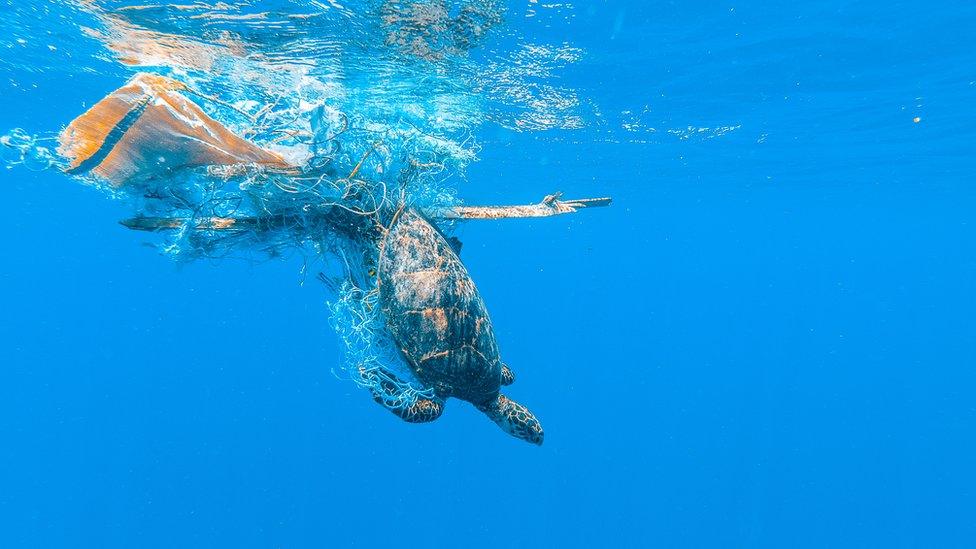The proud fishermen fishing for litter in our seas
- Published
"Fish eat the litter and then you eat the fish"
Fishermen in County Down have been landing much more than their daily catch of prawns and other fish.
Over the past year, trawlers have also brought in the equivalent of 1,100 bin bags full of rubbish.
The Fishing for Litter scheme was relaunched in 2021, after the coronavirus pandemic interrupted its progress.
Fifty-five vessels have signed up, with NI Fishery Harbour Authority environment officer Jenny Lau heading the scheme.
"They say that eight million tonnes of plastic litter are added to the sea every single year," she said.
"For a little bit of scale, that's the equivalent of one dump-truck load of litter being chucked over the edge, every single minute of the day of every single year.
"So it is an enormous problem."
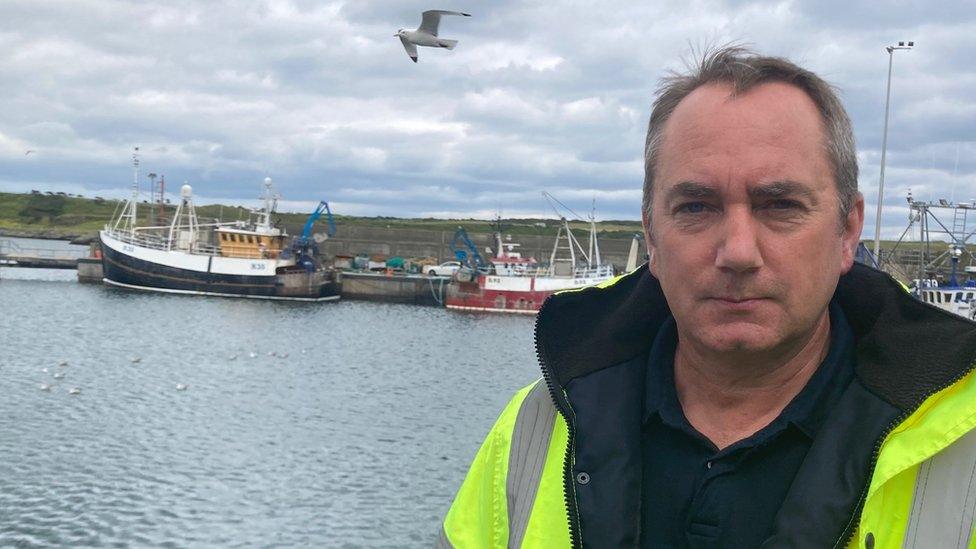
Ardglass harbourmaster James Lenaghan says the items being dumped range from plastic bottles to cookers
And that problem includes a wide range of items.
"Everything from plastic bottles, old gloves, tyres, household products, even gas cylinders, cookers," said Ardglass harbourmaster James Lenaghan.
"We were very surprised at what was being landed at the harbour."
With such a range of litter, ordinary bin bags are simply not up to the challenge.
So the trawlers are given hard-wearing sacks to keep on board.
When the nets come up, rubbish is removed and put into the sacks.
It is then disposed of appropriately when the vessel returns to port, whether that is Ardglass, Kilkeel or Portavogie.
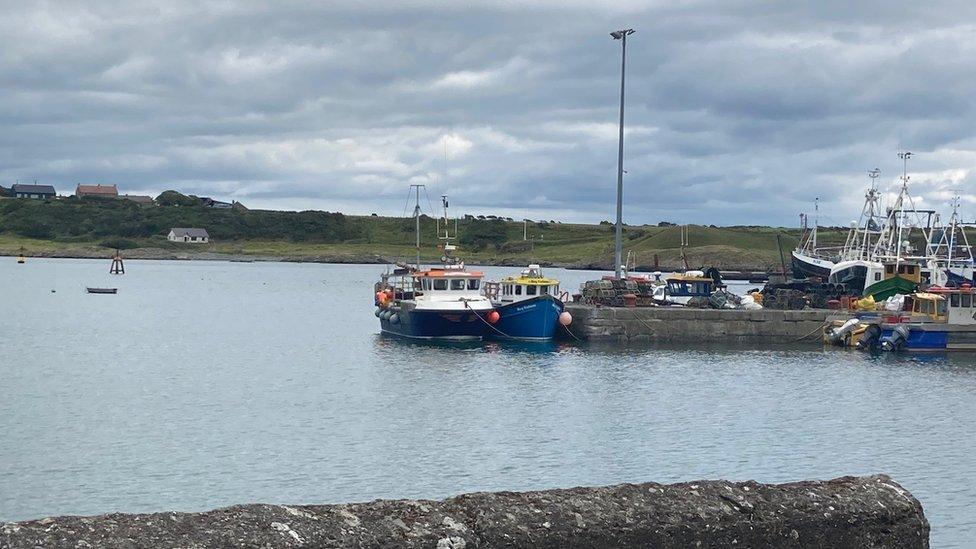
Residents of Ardglass have noticed a difference on the shoreline
"Since the project was relaunched, it's brought in 5.7 tonnes in a year," Jenny said.
"So that is the equivalent of 1,100 bin bags. One bin bag is about 5kg - that's like a mountain of litter that we're talking about.
"It really adds up over the course of time and with all the vessels taking part."
One of those vessels is where 16-year-old Basil has spent his summers since he was 10.
"You catch a lot of litter, you'd actually be surprised," he said.
"It's a lot of work getting rid of it all. There's a lot of oil drums that come up - it's not good to see that - and lots of tin cans.
"It's mad, the amount of stuff that comes up. Then the fish eat that stuff, then you end up eating the fish, so you don't know what you're getting."
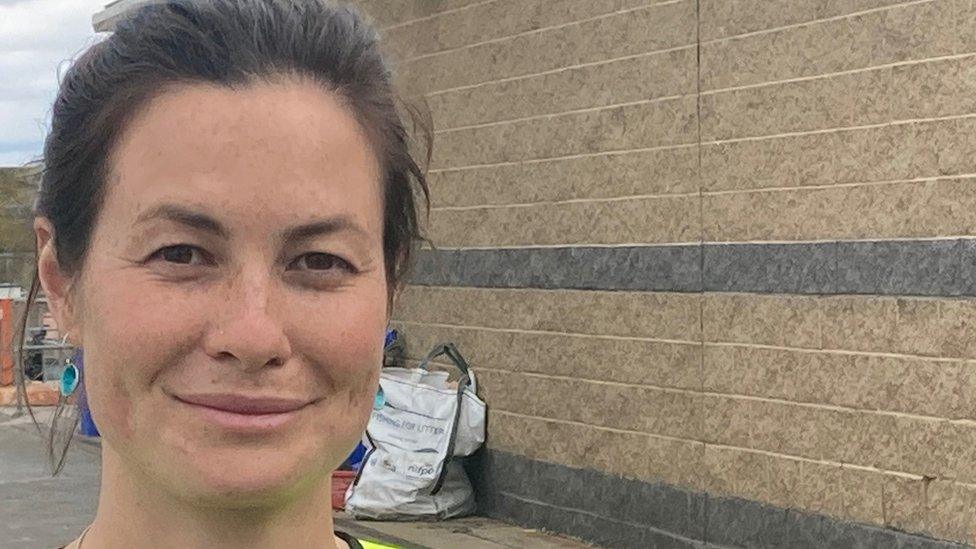
Jenny Lau says in the past, the fishermen would have just returned the rubbish to the water
Catching litter has been a by-product of fishing for years.
In the past, it would often have been returned to the water. But now, Jenny can see there is a growing pride in removing it.
"Since I've been here, a number of our fishermen who have signed up to the project will come over and they'll say to me: 'Jenny, guess what I found in my catch today', or 'come and look at my boat and come see where my bag is tied on the boat'.
"Fishing for litter is a really great response for the fishermen to do the thing that they can do and actually access parts of the world that nobody else has access to.
"And that pride in being able to do something a little bit different, that they know is really benefiting the wider community and the environment, is just very warming, very positive."
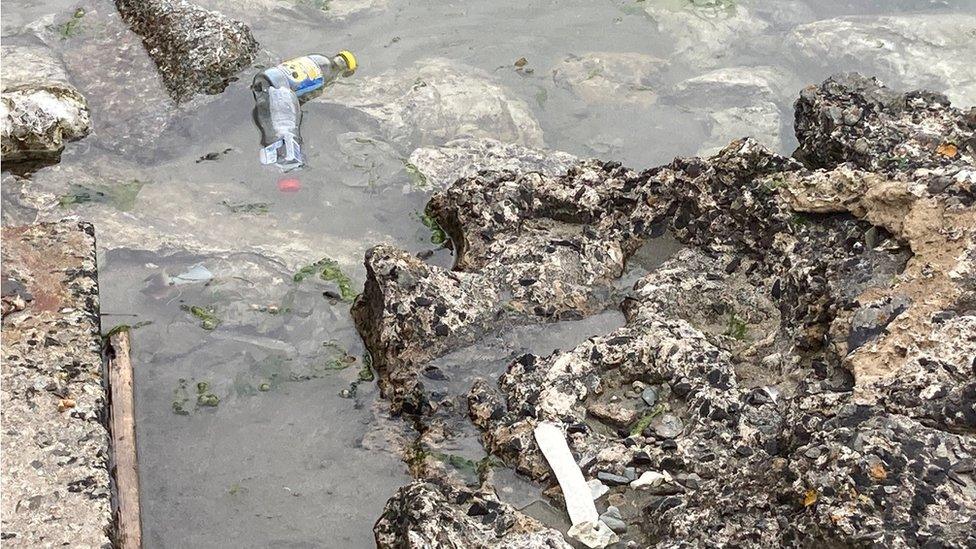
Catching litter has been a by-product of fishing for years
Local residents are seeing the difference as well.
"When we first moved here, you would have seen the litter on the beaches flat out," said Declan Mulligan, who lives in Ardglass.
"It's reduced quite a bit now, so you can actually go down and sit on the beach without worrying about standing on dirty bottles and all sorts of crud.
"It just seems to be second nature to the fishermen now - if they pull something in, they bring it on and dispose of it.
"They like to keep the oceans clean themselves, at the end of the day it's their livelihoods.
"The less litter out there, the more fish they can catch."
As a young man with his eye on a future in the industry, Basil has just one dream.
"I'd want the net to come up just bursting full of prawns and fish, big fish.
"No litter in it at all, just a nice clean sea. That's all I want.
"That would be perfect."
Related topics
- Published25 March 2021
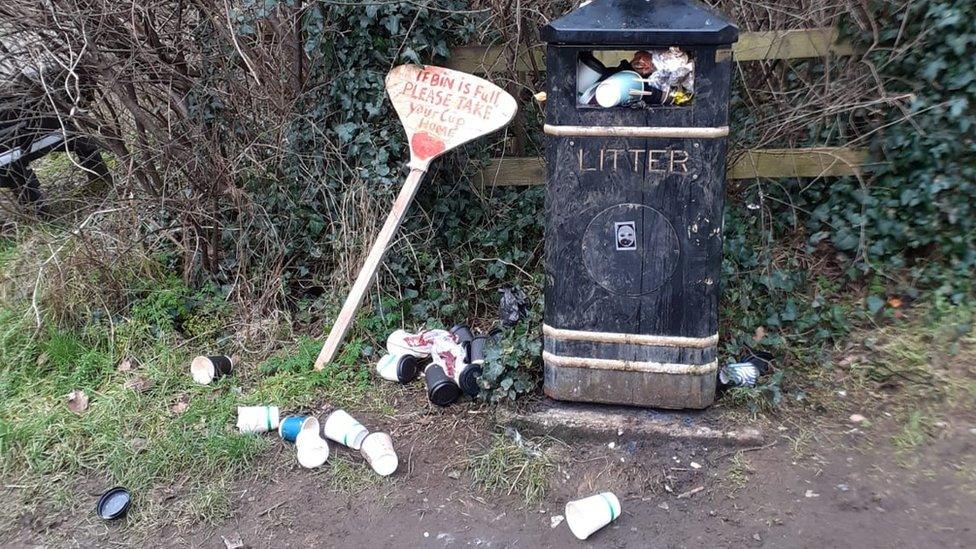
- Published26 June 2019
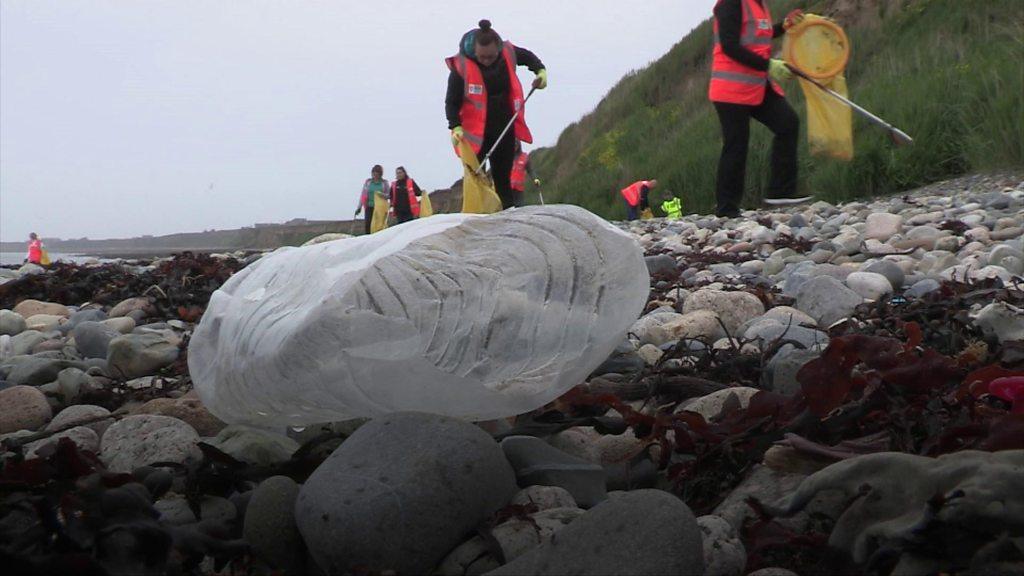
- Published15 June 2019
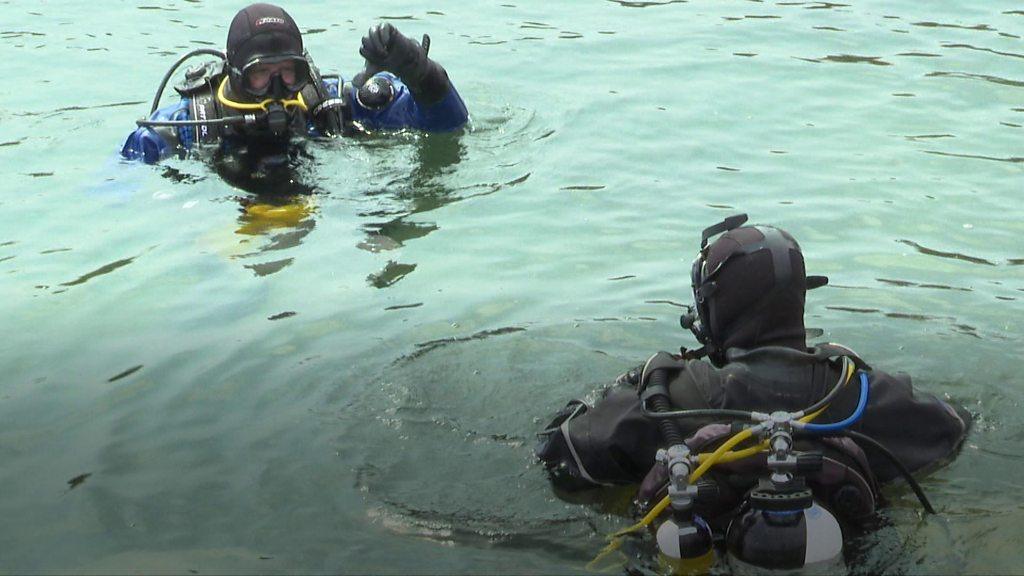
- Published2 March 2022
